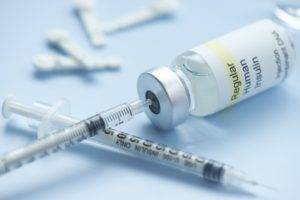
The Pros and Cons of Fasting for Reversing Diabetes
The Pros and Cons of Fasting for Reversing Diabetes
Fasting is a practice that has been used for centuries for both spiritual and health purposes. In recent years, it has gained popularity as a potential tool for reversing type 2 diabetes. Fasting involves abstaining from food and sometimes water for a set period, typically between 12-48 hours or longer. While there is some evidence to support the benefits of fasting for diabetes, there are also potential risks and drawbacks. In this article, we’ll explore the pros and cons of fasting for reversing diabetes.
The Pros of Fasting for Reversing Diabetes:
- Weight Loss: Fasting can lead to weight loss, which is a crucial component of managing and reversing type 2 diabetes if you fix the root cause. Excess weight can cause insulin resistance, which can lead to high blood sugar levels. By losing weight through fasting, it is possible to improve insulin sensitivity and blood sugar control.
- Reduced Inflammation: Fasting can reduce inflammation in the body, which is a common factor in many chronic health conditions, including type 2 diabetes. By reducing inflammation, fasting may help improve insulin sensitivity and blood sugar control.
- Convenience: Fasting can be a convenient way to manage diabetes, as it doesn’t require constant monitoring of blood sugar levels or taking medication.
The Cons of Fasting for Reversing Diabetes:
- Hypoglycemia: Fasting can cause low blood sugar levels, which can be dangerous for people with diabetes, especially those taking certain medications. Hypoglycemia can cause symptoms such as dizziness, confusion, and seizures.
- Nutritional Deficiencies: Fasting can lead to nutritional deficiencies if not done correctly. People with diabetes may be at higher risk of nutritional deficiencies due to the restrictions of their diets.
- Dehydration: Fasting can lead to dehydration, which can cause a range of health problems, including kidney damage and electrolyte imbalances.
- Difficulty Maintaining: Fasting can be challenging to maintain over the long term, which can make it difficult to sustain the benefits over time.
- Doesn’t always work: While there is some evidence to suggest that certain types of fasting can have positive effects on blood sugar control and insulin sensitivity, it’s important to understand that fasting alone is not a comprehensive solution for reversing diabetes.
- Not a Root Cause Solution: After many years of clinical research and success I’ve never seen a person fasting being the solution to fixing the root issue.
Tips for Safe and Effective Fasting for Reversing Diabetes:
If you’re considering fasting for diabetes management, it’s essential to do so safely and effectively. Remember fasting does not fix the root cause! Here are some fasting tips to consider:
- Consult with your healthcare team: Before starting a fasting regimen, it’s essential to consult with your healthcare team, including your doctor and a registered dietitian.
- Start Slowly: If you’re new to fasting, start with shorter fasts and gradually increase the length of your fasts over time.
- Stay Hydrated: Drink plenty of water and other non-caloric fluids during your fast to stay hydrated.
- Monitor Blood Sugar Levels: If you’re taking medication for diabetes, it’s essential to monitor your blood sugar levels regularly to avoid hypoglycemia.
- Break Your Fast Carefully: When breaking your fast, it’s essential to do so carefully and slowly to avoid any digestive issues or blood sugar spikes.
Conclusion:
Dr Spages doesn’t recommend fasting as a solution to reverse diabetes. Fasting can be a useful tool for managing and reversing type 2 diabetes, but it’s essential to approach it safely and effectively. While there are potential benefits to fasting, including improved insulin sensitivity, weight loss, and reduced inflammation, there are also potential risks, including hypoglycemia, nutritional deficiencies, and dehydration. If you’re considering fasting for diabetes management, it’s essential to work with your healthcare team to develop a personalized plan that takes into account your individual health needs and goals. Fasting should not be used as a substitute for medical treatment, and it’s essential to monitor your blood sugar levels and adjust your medication as needed.
In summary, fasting is not an effective tool for reversing type 2 diabetes. It’s essential to approach fasting with caution and under the guidance of your healthcare team. By combining fasting with other lifestyle changes, such as a healthy diet, fixing the root causes and regular exercise, it may be possible to manage and even reverse type 2 diabetes. However, it’s important to recognize that there is no one-size-fits-all solution for diabetes management, and what works for one person may not work for another. By working with your healthcare team and staying informed about the latest research, you can develop a personalized plan for managing and reversing type 2 diabetes.
About Dr Spages
Dr. Jonathan Spages, DC is skilled in the field of Functional Medicine and has exceptional abilities to treat the root cause of issues and illnesses such as hypothyroidism and type II diabetes. He has evolved from the traditional practice of depending mainly on drugs and hormones as a primary means of treatment for these conditions. Rather, he applies innovative methods of diagnostic testing and analysis to recognize the underlying causes of these diseases, which are frequently disregarded in the conventional medical setting.







